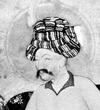- {ʽ}Abbās I
-
I
born 1813died July 13, 1854, Banhā, EgyptViceroy of Egypt (1848–54) under the Ottoman Empire.His rule was one of consolidation, when many of the Western-style reforms begun by his grandfather, Muhammad Alī, were either discontinued or neglected. Though generally distrusting of foreigners, he allowed the British to construct a railroad between Alexandria and Cairo in 1851. The British, in turn, assisted him in disputes with his Ottoman overlords, whom he nonetheless aided by sending troops to fight in the Crimean War (1853). A recluse, he was murdered by two servants at his palace in Banhā.IIknown as ʽAbbās the Greatborn Jan. 27, 1571died Jan. 19, 1629Shah of Persia (1587–1629).Succeeding his father, Muḥammad Shah, he strengthened the Safavid dynasty by expelling Ottoman and Uzbek troops and creating a standing army. ʽAbbās made Esfahan Persia's capital, and under him it became one of the world's most beautiful cities. Persian artistic achievement reached a high point during his reign; illuminated manuscripts, ceramics, and painting all flourished, and the Portuguese, Dutch, and English competed for trade relations with Persia. Tolerant in public life (he granted privileges to Christian groups) and concerned for his people's welfare, his fear for his personal security led him to act ruthlessly against his immediate family.
 ʽAbbās I, detail of a painting by the Mughal school of Jahāngīr, с ...Courtesy of the Smithsonian Institution, Freer Gallery of Art, Washington, D.C.
ʽAbbās I, detail of a painting by the Mughal school of Jahāngīr, с ...Courtesy of the Smithsonian Institution, Freer Gallery of Art, Washington, D.C.* * *
Universalium. 2010.
